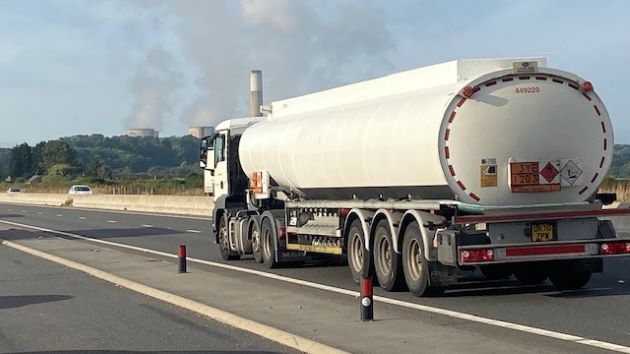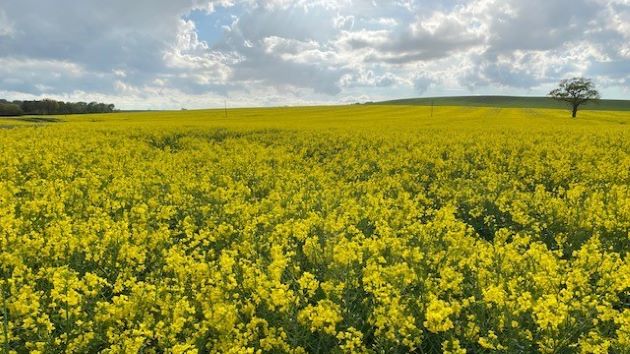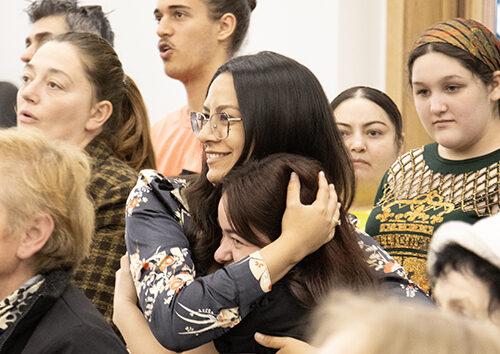28 March 2022 | St Albans, UK [David Wright]
Just days after the war in Ukraine began, the Intergovernmental Panel on Climate Change (IPCC) released its sixth assessment report, warning that while there is still a brief window of time to avoid the worst of global warming catastrophe, insufficient action to date means some impacts are now irreversible. With both these fossil-fuel related events now threatening global stability, the Portuguese United Nations (UN) Secretary-General, António Guterres, cautioned we were still “sleepwalking to climate catastrophe” – as major economies increased carbon pollution just when drastic cuts were needed and are scrambling to replace Russian oil and gas, threatening to derail COP26 promises.¹
 So, leaving aside the potential for even greater world conflict, how might current conflict in Europe impact climate change? Some commentators suggest it has unintentionally saved us from global warming as the world transitions to cleaner, renewable energy.² US President, Joe Biden, certainly seems to believe the crisis provides timely opportunity to accelerate progress towards net zero, agreeing a liquified natural gas deal with the EU, as it vowed to eliminate reliance on Russian imports by 2027.
So, leaving aside the potential for even greater world conflict, how might current conflict in Europe impact climate change? Some commentators suggest it has unintentionally saved us from global warming as the world transitions to cleaner, renewable energy.² US President, Joe Biden, certainly seems to believe the crisis provides timely opportunity to accelerate progress towards net zero, agreeing a liquified natural gas deal with the EU, as it vowed to eliminate reliance on Russian imports by 2027.
The pessimists point out, however, that the combined pressure to find alternative suppliers to Russia, and the drastically reduced timeline to ensure sufficient non-carbon energy sources are in place, means that fossil-based and other environmentally damaging sources will still have to be used short to middle term. In this context, some ethically questionable overtures are being made to substitute oil producers in the Middle East and South America, such as reopening dormant coal, oil, and gas fields, reactivating decommissioned plants, reversing earlier fracking decisions, and mixing domestic methane gas with hydrogen. Additionally, while nuclear power is regarded as ‘clean’, it is incredibly slow to build and produces huge amounts of hazardous waste for which no sensible solution has yet been found.
The Center for Strategic and International Studies (CSIS) identified other consequences yet to be played out in regions already experiencing acute food insecurity, and in food-importing countries most vulnerable to supply shocks and price increases.³ Prior to the war, the Covid19 pandemic had already pushed the number of food-insecure people to record levels, despite ample global food stocks and record-low fuel prices. Now, with global stocks of grains and oilseeds in question, energy prices have soared, and food security is at greater risk.

With Ukraine and Russia together producing 30% of the world’s traded wheat, and 12% percent of its calories, and the war having all but stopped grain exports from both countries, such soaring food prices and shortages are capable of initiating instability across reliant countries in the Middle East, Asia, and Africa. If Ukraine is unable to plant crops for 2023, this will only add to existing climate-driven hunger resulting in wider famines. With Russia being one of the largest fertiliser producers, and half the world being dependent on fertiliser to grow food, any supply reduction will exacerbate the problem by reducing crop yields in those areas.
The Old Testament story of Israel provides an instructive case-history of how irresponsible human behaviour leads to environmental destruction. Given good land to enjoy and a set of practical instructions for living, the Israelites managed, within a few generations, to convert an ecosystem described as “flowing with milk and honey”, to one that reflected the moral condition of its people – as ecological balance was ignored, tree cover removed, soil eroded, and the population devastated by tribal quarrelling and war. The ancient Levitical text had even spelled out the likely outcomes if ‘instructions for use’ warnings were ignored.
The apocalyptic writer John, in Revelation 14, clearly tells us about a time when “every nation, tribe, language and people” will need to be reminded that the “heavens, the earth, the sea and the springs of water” belong to God, and that He intends to do something about our ecological mess soon.
¹ The UN Intergovernmental Panel on Climate Change, March 2022
² Verleger, Boston Globe, 3/3/22
³ The Centre for Strategic and International Studies, 26/2/22
4 Mathiesen, Politico, 28/2/22
David Wright’s passion for creation care, the natural world near and far, precede the times when environment matters gained popular interest. Further insight and commentary connecting the UN Climate Change Conference (COP26) with the Adventist understanding of stewardship of the environment can be found in the October 29th, 2021, edition of Messenger.
Interested in teaching children about creation care?



